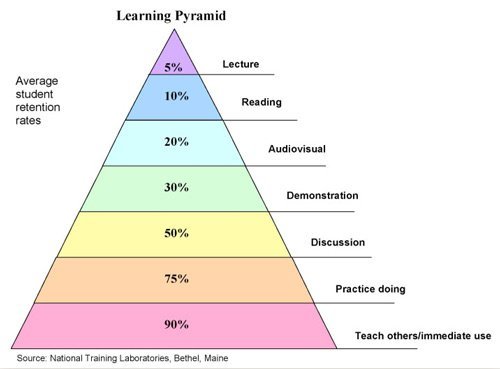How to cope with information overload

Whether it’s news articles, tweets, conversations, spreadsheets or statistics, our brain can’t possibly take in all that information every day and most of it inevitably gets left behind.
Research shows that in order to retain 90% of the information we are given, we must either teach it, or put it into practice straight away. So with this in mind, how can we deal with information overload?
1. Do you have time?
First of all, if the information you’re about to read has nothing to do with your current goals and plans then skip it. You don’t need it.
Ask yourself whether you will be able to put this information into action immediately, and if you can’t within the next 48 hours, don’t bother, you’ll just forget it anyway.
If this is the case, save it to your bookmarks or write a quick note for when you do have the time to either teach it or put it into practice.
2. Less is more
In Tim Ferris’ book The 4-Hour Body, Tim illustrates the minimal effective dose (MED) by talking about medical drugs. Everybody knows that pills have a MED, and after that no other positive effects occur, only some negative side effects if you overdose.
Information is similar in this way. Take in only what you need to, as consuming more than that won’t improve your results any further. Attempting to consume too much could stop you from taking in any information at all.
3. Don’t be fooled
One of the most common causes of consuming ridiculous amounts of information is the need to procrastinate. By reading yet another article we often feel that we are working, and that we’re doing something educational and therefore beneficial.
The truth is you’re procrastinating and this consumption of irrelevant information will get you nowhere, especially when you’re putting off an important task to do so.







